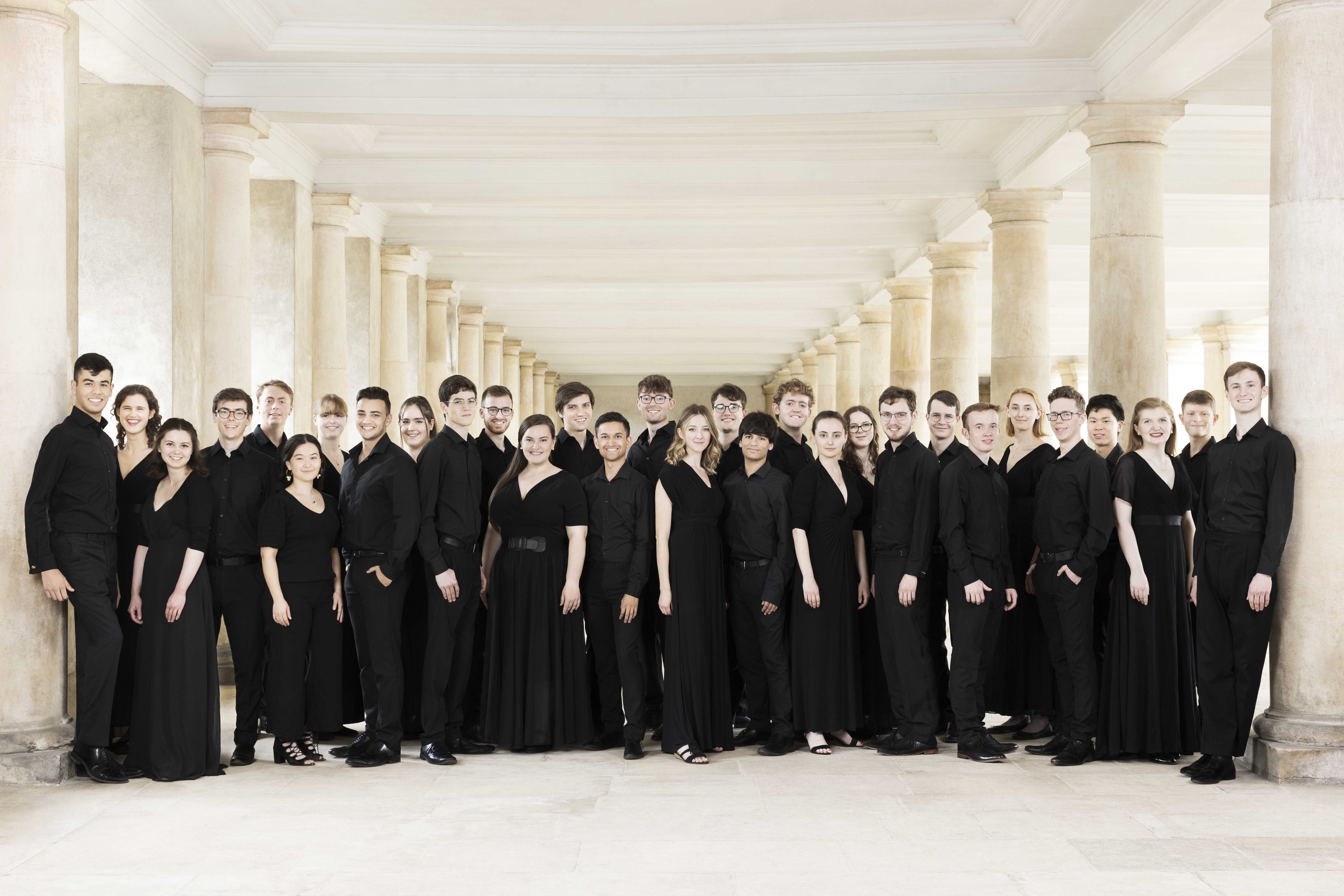Germany Tour - July 2018
> See concert details...Dazzling flowers with ancient roots
College choir presented the winning entries of the festival and its own short program in the abbey church
“I don’t know if we will ever hear such excellent choral singing in the Abbey church again”. The Brauweiler Director of Music Michael Utz was completely thrilled after the concert. The Choir of Trinity College Cambridge had travelled to the prizewinners final of the composition competition Musica Sacra Nova to give the world premieres of the winning works and to shine with a sample of their contemporary repertoire.
The categories of Choir and Organ have existed in the competition for 14 years. The competition was founded at a festival in Czestochowa. Soon the Musica Sacra Association Warsaw and the Archdiocese of Cologne became involved, meaning that the finale is held annually in Brauweiler, organised by the Abbey friends association. New for this year is a third category for liturgical choral music in up to four parts, because in the past the submissions of elaborate compositions in up to 16 parts were simply impossible for most lay choirs to perform.
Although not part of the brief, almost all composers based their works on Gregorian themes. David Ho-yi Chans’ (England) ‘Ave, regina caelorum’ begins subtly in the female voices before the men contribute to the unfolding. Close harmonies make the Angels salutation, which earned second place in the open choir category, attractive. Jakub Szafranski leaves the Angels to sing the Gloria. Mysterious whispers with flashing interjections, the translucent chorale was spiced with Dadaist elements: the work was undervalued with second place. Ethan McGrath (USA) won with his Nunc dimittis. Romantic, with dramatic basses, ballad-like, with a wide balance of sound, his Simoneon’s song of praise is a dazzling flower which blooms on ancient roots.
For his Sanctus he received second prize in the new category behind Krysztof Korczak (Poland), whose Missa Brevis scaled high musical and dynamic mountains and crossed deep valleys.
Michael Utz had studied the organ works. On the magnificent new choir organ he played with verve Michal Schäfers’ (Poland) ‘Lumiere de l aube’ (Light in the Dawn). Here too the foundations lie in Gregorian chant. Thrusting chords, building patterns, and a shimmering quavering middle section distinguish the work, which was awarded third place by the jury. Second (a first prize was not awarded) was Aleksandra Chmielewska (Poland), with a fantasy on ‘Veni Emmanuel’. Similar in character to the preceding work, the piece seemed more playful, with touches of French Romanticism a la Widor, even audacious. Despite Utz’s hands-on playing, the organ works did not reach the quality of the choral works.
The choir consists of almost 40 students who train or rehearse daily. Stephen Layton conducted the works with passion. He hardly needed to pay attention to the right notes and tempi – his students just get it. So his focus lay completely on dynamics and expression. And with that conductor and singers fulfilled their duty, creating exemplary freestyle interpretations of contemporary a cappella works, predominantly from Northern and Eastern Europe.
